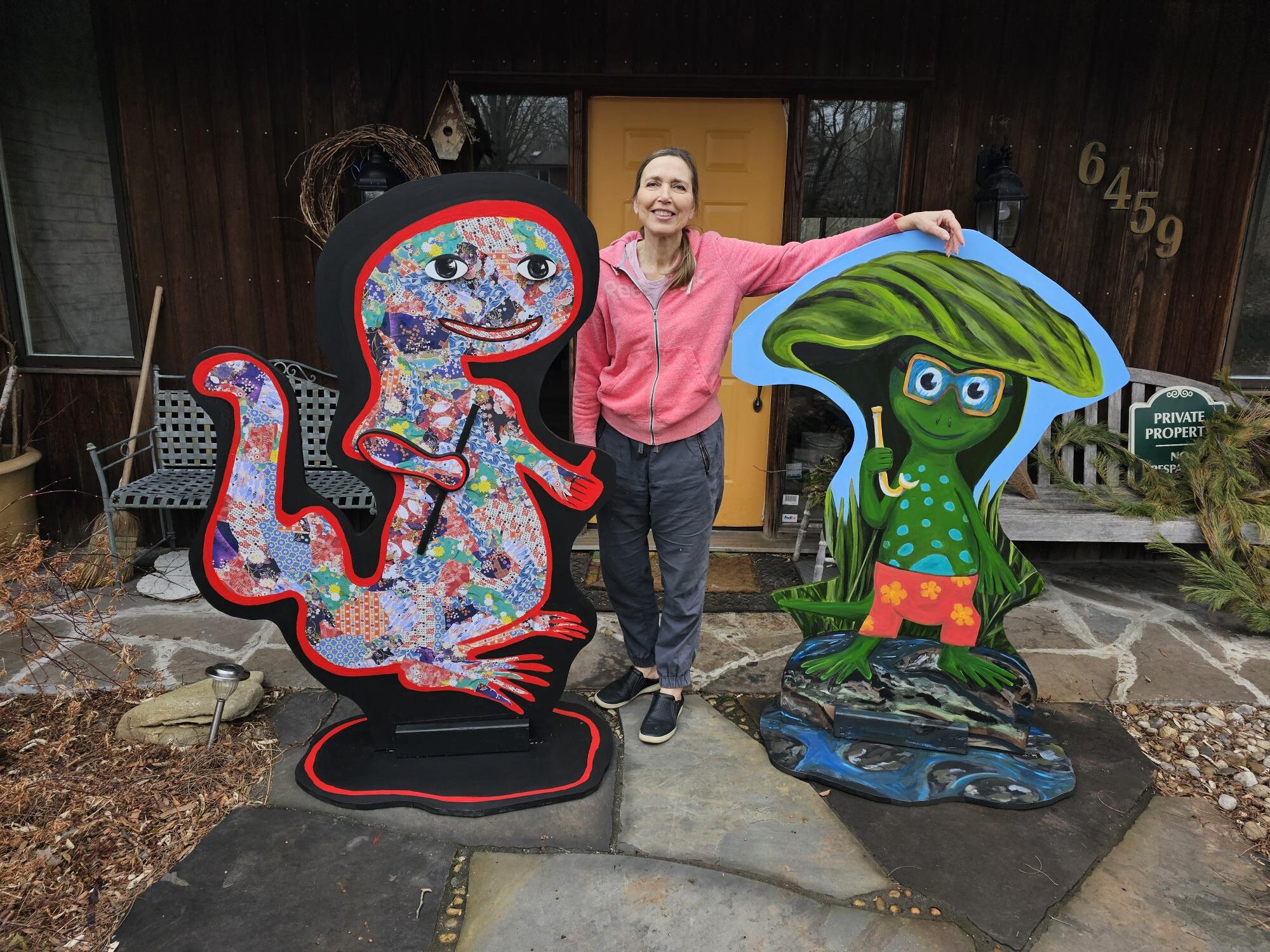By Maisha Hasan, Local Journalism Initiative Reporter
In light of new fantastical adaptations, such as Percy Jackson and The Olympians on Disney+, there is fuss to be had, mainly over X (formerly Twitter), about diversity in not only the fantasy genre, but the entire publishing industry. What is “good” representation? Is there such a thing as unnecessary representation? Or does publishing not offer enough? Sarah Raughley attempts to answer these questions in her workshop for Burlington Public Library’s (BPL) BurLITFest, entitled “Why Representation Matters in Writing.” Sarah Raughley is the author of wondrous YA (young adult fiction) books such as the Effigies series and The Bones of Ruin trilogy, and is an assistant professor of writing at Lakehead University. In Raughley’s work, she routinely gives power to hidden truths of a bitter part in history. In her workshop, she’ll be explaining the importance of doing so.
I had the privilege of speaking to her over the phone rather than in-person, but still cool nevertheless. We discussed her passion for advocating for diversity in writing and navigating the publishing industry as a minority.
[Editor’s note: this interview has been edited for length and clarity.]
How can the publishing industry better support and promote diverse voices and stories?
I think the best thing that I can say is to hire more people behind the scenes, I think that’s very important. I mean obviously you want publicists and agents to care about accepting the work of authors of colours, queer authors, so on and so forth. But I think when you have more of those people behind the scenes that have those unique experiences, then you can better guarantee that they’ll care about the importance of getting diverse stories out there. It has to be on all levels, from the agents, the editors, to the marketing and publicity.
Growing up in Southern Ontario, how did the landscape influence you and further inspire you in your works and passion for this topic?
I lived in Northern Ontario then came down to the Hamilton area. It wasn’t super diverse, actually. I didn’t see a lot of people that looked like me in my daily life, but also in the books I read, there weren’t a lot of books with a black girl on the cover. I guess those experiences of feeling on the outs really made me want to create work for kids that look like me. I do think my experiences of being marginalized inspired me to say “Hey! I’m going to make my art something inclusive and show people similar to me.”
Can you tell me what it was like to carve out a space in not only the fantasy genre but the overall industry as a woman of colour?
It’s not easy. There are still a lot of people writing in YA, which is a big market. I’m proud to share a space with amazing authors of all colours and sexualities but it is a competitive space. For me, I try to create work I care about and am proud of. My hope is that if I continue to create work that I am proud of and is true to myself, even if it isn’t a bestseller, eventually, it’ll end up in the hands of people who get me and my work. It’s not about being at the top or competition. It’s about carving out a space for yourself.
It’s very interesting you mention competition. Because you are a part of a minority group in the industry, are there any expectations and ideas pushed on you because you are an African-Canadian writer? How do you overcome them?
I’m African-Canadian and I think the industry sometimes looks at someone’s industry and says “This is what you have to write based on that.” For example, I’ve had queer friends tell me publishers want them to write a coming-out story. But it’s like, not every story that has an LGBTQ protagonist has to have a coming-out story. So for me, as an African-Canadian, people have looked at my culture, Nigerian, and say “Okay, if you are writing a fantasy story, it has to be an Afro-fantasy or Nigeria-centred fantasy,” and I love those stories, and definitely will get around to writing them, but I don’t want to be limited in what I write. I feel like people look at you and assume the work you should write — ”You are a black fantasy writer and this is the work we expect of you.” Black stories don’t have to be about Black trauma. People should be free to imagine and not hold themselves back from imagining all types of possibilities.
With your first novel, Feather Bound, did you pursue this importance of diversity? How has your work evolved since then?
I actually did, but that was also a time where I felt very insecure. There wasn’t this big effort for diversity in 2014, it was on the cusp for authors of colours to push this issue and then publishers started paying attention. I imagined my character to be Black but I didn’t want to make it specific. So, because of that, the cover artist and publisher got the “go-ahead” to put a white girl on the cover, and I couldn’t do anything. Looking back on it, I should’ve made my perspective clear on the character, but at the same time that insecurity held me back from that. It’s been ten years since, and I’m at a much more confident place, and so is publishing.
You yourself take much inspiration from Japanese media when it comes to writing. How does one who is not familiar with a specific culture or identity have an authentic portrayal of diverse characters and landscapes?
Research is important. Every time you are writing a character who has very different experiences than you, you have to come from a crucial place of understanding that we’re all human. Which means that just because a person is of a different race or sexuality, it doesn’t mean they don’t feel pain or anxiety or happiness or sadness, etcetera. We’re all human and there’s a shared experience we all have. All people are capable of a full range of human emotion and experience. Do your research and don’t assume you know everything.
How are you hoping to inspire at the BurLITFest? What do you hope people learn?
I want to inspire people to write their truths. If you’re a white author, you don’t really have to write a book about a person of a different race than you as a protagonist because there are already different races of people writing these books, books that reflect their own experience, so I think it’s up to publishing to let those authorities through the door, to publish and market those books, Most importantly, I just want people to leave my workshop feeling empowered to write their truths and to find their voices, to write what they would’ve wanted to read as a kid. I write books that I would have wanted to read as a kid but didn’t have the opportunity to. I want to make people feel empowered from their own place of view.
As someone from a younger generation, it is notable that we’re able to acknowledge the wealth of diversity we are now lucky to have in fiction; however, it should never have been the privilege of only non-marginalized kids to easily imagine themselves in different worlds. If blondes can reproduce with their siblings in Game of Thrones, why can’t a Black girl wield magic?
For more information on Sarah Raughley’s workshop, or BurLITFest, go on the BPL website for information and details. Sarah Raughley’s workshop takes place on Thursday, November 16, from 7 to 8 p.m. Registration fills up quickly, so I’d recommend you hurry before I steal that seat from under you.




